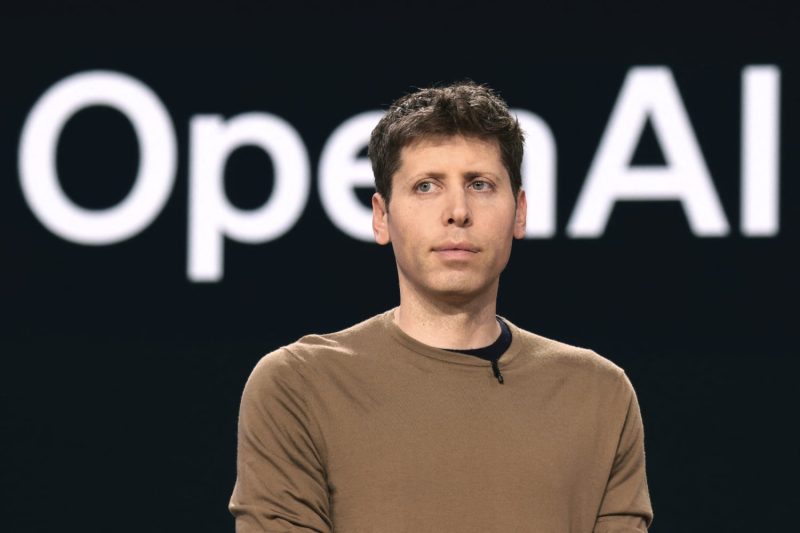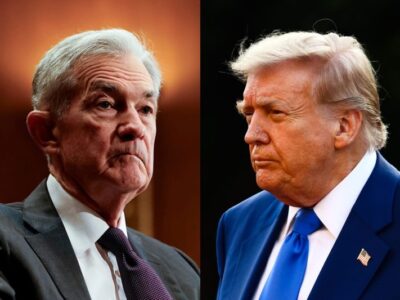
Did someone recently flip a switch? It seems as though Wokeism, the Great Reset, ESG, DEI, and an assortment of other radical left-wing positions, have just taken over. It is in the movies, media, sports, finance, retail businesses, and even in the beer industry. Yet, it is not a uniquely American phenomenon. Wokeism is a part of the international Zeitgeist. For example, this past June, I inadvertently experienced a huge “Pride” parade (reported as having tens of thousands of participants) in Wroclaw, Poland. (Photos not included.) Yet although the Woke agenda seems to be dominating everything, the mask is slowly being peeled away and some are starting to recognize the truly authoritarian agenda that had been so carefully hidden.
Wokeism exploded into our lives because it took advantage of two traits of human nature which readily manifest in capitalism. These flaws are our tendency to avoid work and our basic inclination to trust and rely on others. If a person can avoid work, he will. People are not necessarily lazy, but when costs can be avoided, they are. People act on these cost-benefit calculations. Additionally, people are generally trusting. We tend to trust the label of what we are buying. When one goes to the gas station, how do we know that the machine dispensed ten gallons into our car? When we buy a bottle of 500 caplets, do we immediately count them, or do we trust? Capitalism depends upon a tremendous amount of trust. Each transaction has a certain level of trust built into it.
Wokeism exploits these two traits to our detriment. For example, Wokeism takes advantage of human nature when it comes to deciding who should sit on the board of directors of a large, for-profit company. Suppose that for this company, the board of directors is determined by a simple majority vote of the shareholders. For each share that I own, I get one vote. The likelihood that my couple of votes are going to tip the scales one way or another is remote, and so I have a strong disincentive to actively participate in this election. In economic terms, the cost of the work of researching the candidates and making myself fully informed tends to outweigh the benefit of voting. Instead, I simply trust that the people running the company want to maximize the company’s profits. In other words, I believe that there are bigger investors and fund managers who want to make as much of a return from their investment as I do. Thus, I trust that these bigger investors’ “greed” aligns with my interests. The result is that I am not fully informed about who the candidates are, and I do not vote my relatively few shares. When I do not vote, I open the door for Woke fund managers to put people on the board of directors who are focused on social agendas—environmental sustainability or social justice goals—and are not focused on maximizing profits.
Today, Wokeism has intimidated and cowed the profit-focused businessman. Through their portrayal in movies, news media, social media, and basically all other fronts, the businessman is castigated as cruel, self-centered, and just plain “greedy.” In contrast, it is the “more enlightened” decision-maker who is lauded and celebrated as the hero. The motivation of the new Woke CEOs (whether they are true believers or simply avoiding a hassle) is not really the point. What matters is that they promote the worldview that a close cooperation between public institutions (government) and private companies is best. Government employees, C-Suite executives, activists, and sports and media celebrities all encourage and reinforce the push to integrate and cement public/private partnerships. The integration of corporations and the state goes by many names. Some call it State Socialism or Progressivism. Others call it National Socialism, or “Socialism with a Human Face.” Once upon a time, it was called Fascism. Regardless of the name, it is a top-down, authoritarian approach to “managing the economy.” It allows the elite to manipulate the market away from the choices made by consumers and in the direction that they want (by picking winners and losers), all the while doing so in the name of social justice, equity, or saving the planet. The fact that Telsa, Inc. (the electric car company) has a lower “Environmental, Social, and Governmental” (ESG) score than tobacco and oil companies shows what a scam Woke investing really is.
When businesses seek profits, they are following the subjective valuations of consumers and society. Creating “non-woke alternative” businesses replicates the problem of not following profits, albeit in the opposite direction. It is simply not a solution. However, in my 2022 Rothbard Memorial Lecture, I presented several suggestions about how to fight back.
One possibility, which had not occurred to me at that time, is the Mises Meetup Groups, which have been showing success. In Spring 2022, our loose association, called the Carolina Mises Meetup, was formed. The organizers felt cut-off, isolated, and alone and noted a strong need to connect with others who can give support and encouragement. We were hoping to connect with about 25 like-minded people. We were wrong—very wrong—as the results far exceeded our expectations! As we approach our 6th meeting, we have had an average attendance of 70-80 people and a members list that exceeds 240.
These Meetup Groups are informal gatherings of like-minded people. They are entrepreneurs who are interested in Austrian Economics and in helping other entrepreneurs. Perhaps the most important function of these groups is to demonstrate that we are not alone and that there other people who are willing to help. Groups allow us to utilize the division of labor and get more accomplished. Communities can accomplish many things when the individuals use their talents and energies toward a common goal.
One recommendation that I think has a strong potential is to create certificates, contests, and awards. I have sat through many town council and other local meetings. I have observed that every local municipality is hungry for recognition. I think that there is an opportunity here. Why not set up an award and apply the goals that we would like to see, such as opening markets, reducing bureaucracy, and so forth? The Mises Meetup Group might be the perfect network to find people who are skilled in creating contest rules and connecting with others who could sit on a panel of judges. The awards and certificates do not have to be elaborate; they are fancy pieces of paper in nice frames. However, municipalities covet the attention awards bring. Imagine the influence that such awards and recognitions could achieve. Additionally, these activities allow us to reach outside of our own ecosystem. We can bring in other groups and business owners that may share many of our same values but are unaware that we exist. The economist in me thinks that these awards are relatively low cost and can pay large dividends. The benefits outweigh the costs.
Another potential solution begins with the recognition that too often we doubt ourselves. I have heard, “What Can I do? I am too small to make a difference.” Platitudes like, “Even the longest journey begins with a single step,” seem cliché, but there is a kernel of truth to them. If we want a free and prosperous society, we need to act. We need to start now. There is no central plan for liberty. However, if we share a common goal, we can pull together in the same direction.
Each person is unique, having his own distinct set of talents and abilities. I would like to see each person become a Light of Liberty. A Light of Liberty is someone who can competently discuss the questions of liberty, which means that each of us needs to read, study, and learn. The more we learn, the brighter our light becomes. Over time, people tend to recognize and seek out people with wisdom and knowledge. As we become more knowledgeable in Austrian Economics, we cannot keep this knowledge to ourselves. We need to discuss these ideas with others. There is no best way to present the ideas of freedom. When I present these ideas, I only connect with a fraction of the audience. Then if my wife, a colleague, or a student talks to the same group, then these ideas are presented differently, which reaches those I could not.
Perhaps the most important facet to fighting against Wokeness is having courage. Each person needs to muster the courage to stand firm and resist the intrusion of Wokeness into our lives and our places of business. It is one thing to not buy a product because it backs Woke causes, but without informing the seller why you are not buying from them, nothing will change. We need to have the courage to tell the seller why we made our choice. Knowing that Woke policies are wrong, having the wisdom to pick one’s battles, and having a strong support base of like-minded people helps us to find the courage to resist “Diversity, Equity, and Inclusion” (DEI) and ESG policies.
Shortly after escaping from the Nazis, Ludwig von Mises wrote, “Occasionally I entertained the hope that my writings would bear practical fruit and show the way for policy. Constantly I have been looking for evidence of a change in ideology. But…I have come to realize that my theories explain the degeneration of a great civilization; they do not prevent it. I set out to be a reformer, but only became the historian of decline.” If Mises gave up after writing his memoir in 1940, we would never have seen Human Action, Bureaucracy, Planning for Freedom, or many other of his important writings. He would not have been there to tutor Murray Rothbard, Israel Kirzner, and many others to keep Austrian Economics alive through the Keynesian ’60s. We simply cannot know the long-run impact that our actions today will have on people decades from now. However, if we do nothing, then it is certain that there will be nothing to show for it. The popularity of Wokeness, DEI, and ESG policies will wane, and we need to fill the Zeitgeist with the vision of how a free and prosperous society can truly work. With more people becoming Lights of Liberty, we can influence the direction of society for the better. Recently, I was accused of being an optimist. I am. I think that there is time to change the direction of society towards free markets. I plan on brightening my light and the Lights of Liberty within my students and those around me. Will you join me?








